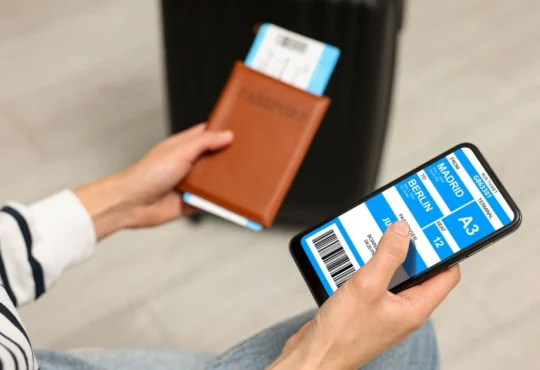Traveling offers an exciting opportunity to explore new cultures, meet interesting people, and create unforgettable memories. However, among the many incredible experiences, tourists can sometimes fall prey to scammers, particularly in transportation-related schemes. While most locals are friendly and genuinely helpful, opportunists always look to take advantage of unsuspecting travelers. The key to avoiding scams is awareness and preparedness. Travelers can protect themselves while enjoying their journey by understanding common transportation scams and learning how to recognize red flags. This guide outlines the most common travel scams worldwide and provides actionable tips to help you steer clear of trouble.
1. The “Helpful” Local Leading to Closed Attractions
One of the most well-known scams involves a seemingly kind-hearted local approaching tourists and telling them that a major attraction is closed for the day due to a holiday, maintenance, or a private event. They will then offer an alternative, often suggesting a private tour, a different attraction, or a nearby shop where they receive a commission for bringing in tourists.
For example, tourists visiting the Grand Palace in Bangkok are sometimes approached by scammers claiming the temple is closed for a special ceremony. The scammer then offers to take them to another temple or a shop, often charging an outrageous price for transportation. Falling for this scam can lead to wasted time, overpaying for unnecessary services, and missing out on the intended destination.
To avoid this scam, always verify information independently by checking the attraction’s official website or calling their office. If a stranger approaches you with this claim, politely decline and continue toward the entrance to check for yourself. Many attractions post updates on entrance gates, so look for official notices rather than taking a stranger’s word. Avoid accepting unsolicited help from strangers, especially those who seem overly eager to assist. Trust your instincts—if someone is too persistent in redirecting you elsewhere, they likely have an ulterior motive.
2. The “Overly Friendly” Driver
Sometimes, a taxi or tuk-tuk driver will strike up a friendly conversation and suggest taking you to a bar, restaurant, or special shop that locals supposedly love. Upon arrival, you may find yourself in a venue where drinks or goods are significantly overpriced. Scammers sometimes work with accomplices who pressure you to spend large sums before being allowed to leave. Some bars even add fake charges to your bill, making it impossible to leave without paying an outrageous amount. These scams are common in major cities, particularly those with busy nightlife scenes.
To avoid this scam, be cautious if a driver or new acquaintance suggests visiting an unfamiliar location, especially bars or shops. Politely decline their offer and stick to your original plans. If you feel uncomfortable or sense something suspicious, leave immediately and find a safer alternative. Always research reputable places before heading out, and use ride-hailing apps to avoid untrustworthy drivers. Remember that overly friendly drivers suggesting detours usually have hidden motives, so staying firm with your route is the best way to keep safe.
3. The “Distraction” Scam
A classic pickpocketing trick involves creating a distraction to divert your attention while an accomplice steals your belongings. One common version of this is the “Mess on Your Dress” scam, where a stranger spills something on you (like sauce, a drink, or bird droppings) and insists on helping clean it up. Meanwhile, their accomplice steals your wallet, phone, or bag. This scam is particularly common in crowded tourist areas, including in Buenos Aires, where pickpockets use the “mustard trick” to rob unsuspecting tourists. These distractions can also involve fake street performances, sudden arguments, or people dropping items to get your attention.
To protect yourself, be extra cautious when strangers try to touch you or create a scene. If someone spills something on you, move away immediately and check your belongings instead of focusing on the mess. Keep valuables in a secure, hard-to-access location, such as an anti-theft bag or a money belt worn under clothing. Be mindful of your surroundings in crowded places, as pickpockets thrive in busy tourist hubs. Lastly, trust your instincts—quickly remove yourself from the situation if something feels off.
4. The “Fake Ticket” Scam
In this scam, a scammer approaches travelers at a ticket machine and claims the machine does not accept foreign credit cards. They offer to purchase the ticket with their local card, but instead, they hand you an invalid or child-priced ticket, keeping the price difference. Sometimes, the scammer will even ask for more than the ticket price and pocket the extra cash. Tourists unfamiliar with the local ticketing system may not realize they’ve been scammed until they attempt to board and are denied entry. This scam is common in train stations, subways, and even at major tourist attractions.
Always buy tickets directly from official counters, machines, or authorized online platforms to avoid this. Never hand cash to a stranger to purchase tickets on your behalf, no matter how helpful they seem. If you have trouble using a ticket machine, ask an official employee or look for instructions in English. Double-check your ticket to ensure it is valid before boarding, and compare it to any official pricing charts displayed at the station. If you suspect fraud, report the scammer to station personnel to prevent others from falling victim.
5. The “Cancelled Train” Scam
Scammers approach travelers at train stations, claiming their train has been canceled. They then offer to sell an alternative ticket at an inflated price—sometimes even for a train that doesn’t exist. Sometimes, they will take the original ticket and claim it’s invalid, convincing tourists to buy a new, fake ticket. This scam preys on travelers who are unfamiliar with local transportation systems and are more likely to trust a seemingly helpful local. Once the traveler realizes the fraud, the scammer is often long gone with their money.
To protect yourself, always verify cancellations with official railway employees or station boards before taking action. Do not give up your ticket to someone claiming it’s invalid, as official employees will always verify tickets at checkpoints. Only purchase tickets from official sources or reputable travel agencies, avoiding street vendors or individuals claiming to have “special” tickets. If approached by someone claiming your train is canceled, check the departure screens or ask at the ticket counter instead of trusting a stranger. Knowing this scam can save you from unnecessary stress and financial loss.
6. Charter Flight Scams
Some scammers sell fraudulent charter flights that either don’t exist or lack proper government approval. Victims may pay for a ticket only to find out at the airport that their flight doesn’t exist. In other cases, the airline may have lost its operating license, leaving passengers stranded. These scams often involve fake travel agencies, misleading advertisements, or third-party websites offering deals that seem too good to be true. Unfortunately, many victims don’t realize they’ve been scammed until they try to check in for their flight.
To avoid falling for this scam, always book charter flights through well-known airlines, reputable travel agencies, or verified booking platforms. Before purchasing a ticket, check with the U.S. Department of Transportation (DOT) or other relevant authorities to ensure the airline is legitimate. Be wary of deals that seem too good to be true, as scammers often use unrealistic discounts to lure victims. Confirm the flight details with the airline directly before making any payments. Always double-check the legitimacy of a company before booking to ensure your travel plans are secure.
7. International Driving Permit (IDP) Scams
Some fraudulent websites and agencies claim to issue International Driving Permits (IDPs) for a fee. However, only three organizations are authorized to issue IDPs in the U.S.: the U.S. Department of State, AAA, and the AATA. Scammers often create fake websites that look official and charge inflated fees for completely useless documents. Travelers who unknowingly purchase these fake permits may face legal trouble or be denied car rentals abroad. This scam is particularly harmful as it can lead to issues with law enforcement in foreign countries.
Only obtain an IDP through official channels such as AAA or AATA to protect yourself. Avoid third-party websites offering instant IDPs for a high fee, as they are often fraudulent. Before purchasing, visit the official website of authorized providers to verify the correct application process. If you are unsure whether a website is legitimate, check for government endorsements or official recognition. Staying informed about the correct procedures for obtaining an IDP will prevent you from wasting money on a useless document.
General Tips to Avoid Transportation Scams
1. Research & Plan
Before traveling, research common scams at your destination. Many travel forums and government websites provide warnings about active scams.
2. Be Wary of Unsolicited Help
If someone approaches you offering assistance, remain cautious. Scammers often appear overly friendly to gain trust before taking advantage of tourists.
3. Protect Your Belongings
Keep your valuables in a secure, hidden location. Avoid using backpacks or purses that are easy to snatch.
4. Trust Your Instincts
If a situation feels suspicious, it’s best to walk away. Scammers rely on hesitation and uncertainty to manipulate their targets.
5. Use Reliable Transportation
Only use licensed taxis or reputable rideshare services like Uber or Lyft. If using public transportation, buy tickets from official vendors.
6. Avoid Untraceable Payment Methods
Scammers often demand payments through wire transfers, gift cards, or cryptocurrency—methods that are difficult to trace and recover. Always use secure payment methods.
7. Don’t Rush Decisions
Scammers use high-pressure tactics to force quick decisions. Take your time and verify the information before making any payment.
8. Research Before You Buy
Check online reviews and consumer complaints before booking transportation services. Scammers often create fake websites to trick travelers.
9. Get Everything in Writing
If booking a transportation service, ask for a confirmation email or a written contract before paying.
While scams exist worldwide, most interactions with locals are genuine and positive. The key to staying safe while traveling is awareness and preparation. By recognizing common transportation scams, trusting your instincts, and using reputable services, you can enjoy your trip without falling victim to fraud. Report any scams to local authorities or consumer protection agencies. Your report can help prevent future travelers from being deceived. Travel wisely, stay vigilant, and enjoy every adventure!





